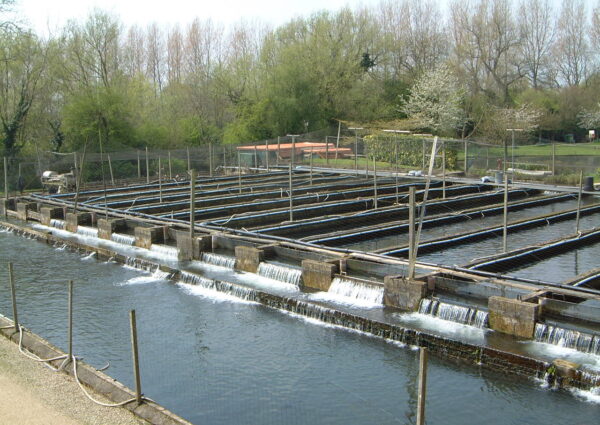As our population increases, we need to become ever more efficient at producing good quality food while minimising the impact on our planet.
Read moreAs our population increases, we need to become ever more efficient at producing good quality food while minimising the impact on our planet.
Within the UK, Trout is one of the most efficient farmed species. It has a low Food Conversion Ratio (FCR) of around 0.8-1:1. This means for every 800g of feed, the Trout will grow 1000g. (Source: Nofima)
British Trout FCRs has been steadily decreasing for the last 20 years with good trout welfare and health and improvements in feed. A low FCR is better for the environment as it results in less waste products.
Fish has a requirement for specific amino acids, fatty acids and a number of essential nutrients.
Read moreFish has a requirement for specific amino acids, fatty acids and a number of essential nutrients.
Over the last 30 years fish feed technology has dramatically evolved. Highly nutritious extruded pellets now contain more vegetable oils, fish oil from human processing waste and an ever-increasing use of algal oil to provide a source of EPA and DHA omega-3 fatty acids. This reduces the reliance on fish oil from the wild.
The British trout industry adheres to quality standards (QTUK) which ensures that raw materials used in fish feed pellets are sourced responsibly.
The AquaFeed industry continues to invest and develop new and novel sustainable ingredients, further reducing the reliance on marine raw materials.
The British Trout industry has a focus on fish health. This has been achieved through good husbandry techniques, vaccination programs and natural functional health feeds. Through this we have reduced antibiotic usage, helping to reduce antimicrobial resistance.
UK trout farms use high quality water with high oxygen levels and low waste.
Read moreUK trout farms use high quality water with high oxygen levels and low waste. They and are non-consumptive users of water which means the water used is returned. Filtration systems ensure water going out complies with UK environmental standards and is often cleaner when going out.
The British Trout industry is currently supporting over a thousand jobs both directly and indirectly through the supply chain.

